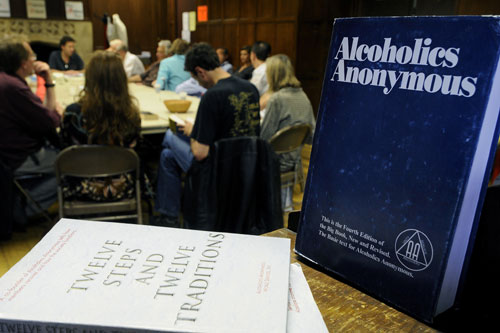On March 24, 2016, the Ninth Circuit Court of Appeals decided a very important case that touches on areas of life that extend well beyond that of immigration law where the case arose. That case is Ledezma-Cosino v. Lynch.
It deals with a man from Mexico who was ordered deported from the United States not because he had committed any serious crime or because he was a terrorist, but because he had been labeled as a person lacking good moral character solely because of an existing alcohol addiction.
One might ask: what is “good moral character”? Surprisingly, the law does not define it very well and certainly within the federal statutes which affected Mr. Ledezma-Cosino, there was no list of what is considered “good moral character.” Rather, the list states what is not “good moral character.”
First on that list is the term “habitual drunkard.” Therein lies the rub; that is, an individual who is labeled an “habitual drunkard” is considered a person who lacks good moral character. Why would that be the case?
Towards the end of the 19th Century and into the early 20th Century the immigration laws of the United States had stated that an individual who is a chronic alcoholic, i.e. an “habitual drunkard,” is someone who is not worthy to live in our society. Worse, that same person is one who should be removed and looked down upon. This state-supported attitude has perpetuated the falsity that alcoholism is a character flaw, or a reflection of poor judgment by the afflicted person
However, starting in the 1930’s, alcoholism began to be better studied by the scientific community and finally was recognized and accepted as a medical condition. Alcoholism turned towards being classified as an actual addiction (disease of the mind) which requires treatment instead of a morality failing of the affected person. This marked the start of a huge leap forward in the medical community as chronic alcoholics for the first time were able to seek out and receive help and with proper treatment, overcome and control this disease.

But the legal community, particularly in the federal statutes which affect immigration, lagged way behind and thus people like Mr. Ledezma-Cosino continued to be labeled as “bad people” who should not be permitted to remain in this country.
Fortunately, the Ninth Circuit recognized that the labeling of those with alcohol problems who are termed “habitual drunkards” violates the Equal Protection Clause of the Constitution because if such individuals had any other disease such as cancer, there would be no such stigma attached to that condition.
The Court held that because there is no rational basis to classify people afflicted by chronic alcoholism as lacking good moral character, this federal statute is unconstitutional. Specifically, they stated the following:
“Several of these studies have no link to moral culpability at all; even the Government would concede that being a victim of a crime or committing suicide does not show poor moral character. More important, the link between alcohol and violence does not make being the victim of the disease of alcoholism equivalent to possessing poor moral character.”
This is a decision which may well affect other areas of the law such as family, criminal and civil, as well as in administrative hearings for Workmen’s Compensation rights. It remains to be seen the full impact of this case, but it fully establishes that all of our laws must be consistent with the Constitution or they will be struck down.
To read more about this incredible victory by the The Law Offices of Milner & Markee, LLP view these supplemental resources:
Alcoholism Ruling Brings Science To Immigration Decisions – Law360.com
Alcoholism is a Mental Illness, Not a Choice, Court of Appeals Rules – USNews.com
Immigration law can’t discriminate against ‘habitual drunkards,’ court rules – LATimes.com
Appeals Court Rules ‘Habitual Drunkard,’ Illegal Immigrant Can Seek to Cancel Removal – BreitBart.com
Ledezma-Cosino v. Lynch Opinion – United States Court of Appeals for the Ninth Circuit
YouTube Live Court Proceeding for Ledezma-Cosino v. Lynch – Nora E. Milner, Esq Arguing


 Deferred Action for Childhood Arrivals
Deferred Action for Childhood Arrivals

